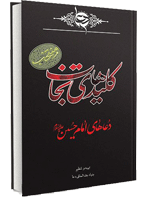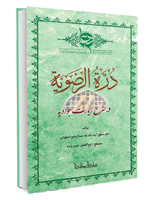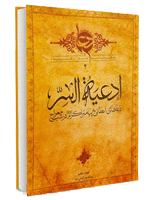- Prophet Muhammad (P.B.U.H&HF): Whenever one of you is needy and brings that to other people, he will not be satisfied. and Whenever someone is needy and brings that to Lord, he shall give him what he wants. sooner or later.
- Imam Sadiq (As.): Whenever you had tenderness in your heart, Pray. because your heart doesn't get tender unless it's pure.
- I told to Imam Baqir (A.S): “What is the meaning of “truly, Ibrahim was awwah and patient”? He replied: “Awwah means (the one who is) praying (to) and wailing (for God) a lot.””
- “Two people, who have acted alike, enter the heaven, but one of them sees the other one in a higher place. Then, he says: O’ Lord! How come has he a superior place in comparison to me while we acted alike? God the Almighty replies: “because he asked Me (whatever he needed) and you did not do that”.
- “The most knowledgeable person to God is the one who asks more from Him”
- “Whoever prays a lot, the angels say: This voice is familiar (to us) and this is the supplication which is accepted and this is the need which is provided”
-
The Holy Prophet (peace be upon him and his Household):
-
وَ لَوْ عَرَفْتُمُ اللَّهَ حَقَّ مَعْرِفَتِهِ لَزَالَتِ الْجِبَالُ بِدُعَائِكُم
If you knew god the way you should’ve known, Mountains definitely will be moved by your supplications. - Crying out of fear of God is the key to his mercy, it’s a sign for his acceptance and it’s a door to answering [supplications]
- Pray to God and believe in his answeres. But understand that God won't accept prays from an unwitting oblivious heart.
Does supplication make people lazy and lax?
Does supplication make people lazy and lax?
One of the issues raised about supplication has something to do with its socio-psychological dimension. Some people raise the objection that people’s faith in the effect of supplication makes them lax in their life activity—in their personal as well as social affairs. Accordingly, this laxity willy-nilly brings about social backwardness and becomes an effective instrument in the hands of tyrants, who keep the people engaged in supplication and devotional acts, while they plunder their resources.
The fact of the matter, however, is that every truth can be misused in one way or another. If a truth is misused, one should not reject the essence of that truth. Supplication does not mean that we should not struggle nor make any effort to fulfill individual or social needs. Supplication means that the faithful [mu’min] considers God as the Real Effecter. Whenever he feels the need to solve his problem, he turns to God besides employing the materials means at his disposal to solve his problem, for God has enjoined and willed so. However, he does not consider these factors to have independent results. As a result, even if the material factors are not available, he will not be dejected, for he regards God as All-powerful to meet his needs through non-material means. In view of this, belief in the power of prayer induces him to struggle and be hopeful.
If a person relies only on material factors, he will only work if he is hopeful of their availability. But the faithful is not hopeless even when he knows that the conventional factors are not available.
During the Battle of Badr, when the Muslims were in utmost difficulty and their soldiers and military equipment were far inferior to that of the enemies, they resorted to supplication and God also answered their supplication. He sent three thousand angels to their rescue and they emerged victorious.12 If the Muslims had no belief in supplication or had a low morale, they would have withdrawn and eventually been defeated.
So, belief in supplication does not end up in withdrawal and defeat. On the contrary, sometimes the absence of belief in supplication gives way to defeat. This objection actually results from the lack of proper knowledge of supplication. The notion that man must only pray and not work does not represent the true meaning of supplication. Once we ask something from God, we have to regard Him as the Real Effecter and whatever we possess as belonging to Him, and not that we have to regard whatever we possess to be our own and seek the help of God through other means. Does the existence of man and whatever he possesses not belong to God?
Supplication does not mean that man should ask God to do something through other than the conventional means. This is actually determining what God must do. It is like the one who has bread on his table but still asks: “O Lord! Give me provision through other means.” This is not a valid supplication.
If a person really wants something from God and recognizes Him as the All-efficient and All-wise, he must use whatever is at his disposal, and if he feels anything lacking, he must ask it from God. Hence, to the person whom God has bestowed sight but does not open his eyes and only says, “O Lord! Let me walk with closed eyes and reach my destination,” it must be said: “Has God not bestowed sight for you to use?!”
Supplication does not mean that we have to discard the blessings God has bestowed upon us out of His infinite wisdom and say, “O Lord! Give the same thing through other means.” This is actually like saying, “O Lord! I do not accept Your scheme. You told me to see with my eyes but I want to see with my ears!” It is narrated that Prophet Musa (Moses) (‘a) got sick and the Israelites prescribed a certain herbal medicine, but he said, “I refuse any medical treatment as I am waiting for God to cure me.” After sometime, his awaited recovery was nowhere in sight. God revealed to him: “By My Power and Glory! I shall not cure you unless you use the same herb for your treatment. O Musa! Do you want to discredit My wisdom by your reliance [tawakkul]? Except Me, is there anyone who has the power to cure you through the roots of this herb?”
Naturally, God’s wise design is not consistent with our whims and caprice:
﴿ وَلَوِ اتَّبَعَ الْحَقُّ أَهْوَاءَهُمْ لَفَسَدَتِ السَّمَاوَاتُ وَالأرْضُ وَمَنْ فِيهِنَّ ﴾
“Had the Truth followed their desires, the heavens and the earth would have surely fallen apart [along] with those who are in them.”13
So, we must use, in the best possible manner, whatever is at our disposal and accept God’s scheme and wisdom. The causes and factors He has provided in the world are based upon the dictates of His wisdom. Everything is beneficial to us and contributes to solving our problems. Thus, we must not set them aside and ask for provision through other means. If we use whatever is bestowed upon us, we will realize that God has already provided the means to solve our problems. The only thing lacking is our failure to use them.
Of course, God is not incapable of providing those things through other means, but not to use the means placed at our disposal does not represent supplication and reliance on Him [tawakkul]. It is rather an act of abuse or misinterpretation of Islamic concepts that some people hold. Tawakkul does not mean belief in God without using the material means He has provided.
Therefore, those who truly rely on God [mutawakkilin] are far more active than other people. The struggle of the Islamic combatants [mujahidin] who go to the battlefront by relying on God and fight with the enemy considering victory as coming only from God is far greater than that of those who do nothing and only pray.
﴿ وَمَا النَّصْرُ إِلا مِنْ عِنْدِ اللَّهِ الْعَزِيزِ الْحَكِيمِ ﴾
“And victory comes only from Allah, the All-mighty, the All-wise.”14
The true mujahid asks for victory and help from God without ignoring, rather, using whatever God has given him. So, true supplication is practiced by one who uses all the means and factors God has provided, not discarding them and asking for the realization of his needs through other means. According to the traditions [riwayat], the supplication of such people will not be accepted. In some narrations, it is reported that a certain man had an impious wife and prayed to God to save him from her evil but his prayer was not accepted because God had given him the right to divorce her whenever he wished to.15 If she was indeed impious and living with her was against his felicity in this world and the hereafter, he should have divorced her. So, his supplication had no sense.
Of course, if his intention in his supplication was for God to give him more endurance to deal with such a woman so as to attain spiritual perfection or for Him to reform her character, his supplication was ideal; otherwise, it was useless, because the means to be relieved from her mischief was at his disposal and he was not using it. If this person was really serious in what he was praying for, he should have used the means God had provided him.
The Messenger of Allah (S) is reported to have said:
أَلدَّاعِي بِلاَ عَمَلٍ كَالرَّامي بِلاَ وَتَرٍ.
“The supplicant who is devoid of action is like the arrow without any bow.”16
In another hadith, he (S) said: “The supplication of one who stays at home and asks for sustenance from God will not be accepted.”17
So, Islam does not replace means and factors at the disposal of man with supplication. It rather wants him to realize that causes are not independent of God. The effect of all causes emanates from Him. Thus, even with the existence of causes, man must focus his attention towards God. He must ask God for all his needs even if all the common means to acquire them are accessible. Even if his daily bread is provided, the faithful person turns to God and asks Him to remove his hunger. In his view, all things are means and the ultimate effect emanates from God. So, supplication is desirable under all conditions—whether man has access or no access to the common means.
When common means are accessible, supplication shows that he does not consider these means as independent, and believes in God as Self-sufficient and in his own need for divine blessings. When common means are not accessible, supplication shows that he does not consider the Power of God as limited to common means, and believes that He can meet his needs through other than common means. Hence, supplication is desirable under all conditions.
If a person with strong faith feels hungry, he will ask God to satiate him and then go to the kitchen and eat. In this case, his eating does not contradict his supplication. That is, he only regards God as the Real Agent in meeting his needs, believing that as God wills and gives this effect, food removes one’s hunger and as such, he consumes it; otherwise, the presence or absence of food makes no difference to him, because he believes that God could satiate him in whatever way He likes.
God thus revealed to Prophet Musa (‘a): “O Musa! Ask Me for whatever you need, including your food’s salt.”
The essence of supplication is for man to understand and acknowledge that he has nothing of his own and whatever he possesses comes from Him. The power to move and act comes from Him. God has provided the means and instruments, as well as the power to think and reflect. These are all divine blessings that must be utilized in meeting one’s needs. Asking God actually means that man must acknowledge that all means belongs to God. This is the essence of servitude, which requires obedience.
Therefore, belief in the power of prayer does not make one lazy. On the contrary, it serves as a stimulant for man to strive and make more efforts.
In the Presence of the Beloved
Muhammad Taqi Misbah Yazdi






